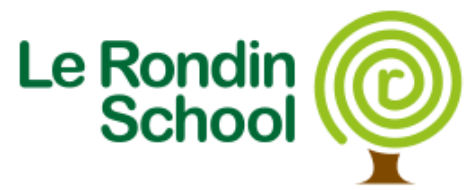Our Religious Education (RE), Philosophy and Ethics curriculum is designed to ensure that our learners develop an understanding of the world religions, faiths and other beliefs by exploring similarities and differences. We believe that it is an essential area of study which ensures that children are prepared for life in a world where there are a multitude of viewpoints. It will provide children with the opportunity to make their own informed decisions about their own beliefs and views.
Where possible, Le Rondin pupils will also be taught to understand and use appropriate vocabulary linked to their RE curriculum, which will support their development in other curriculum areas such as Literacy. RE, Philosophy and Ethics is linked into other curriculum areas such as PHSE by teaching about stereotypes, respect and tolerance.
